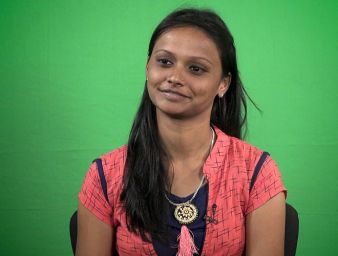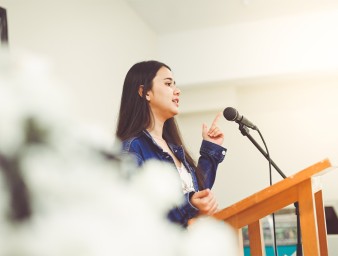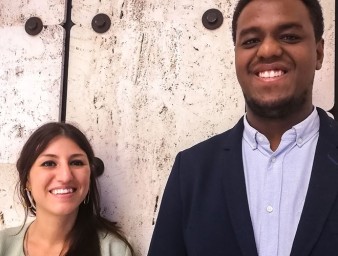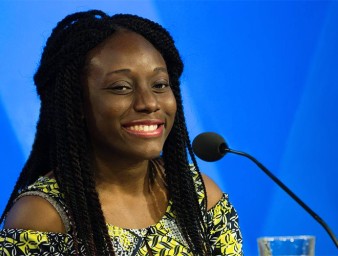Human rights education invests in peace and progress
15 December 2023
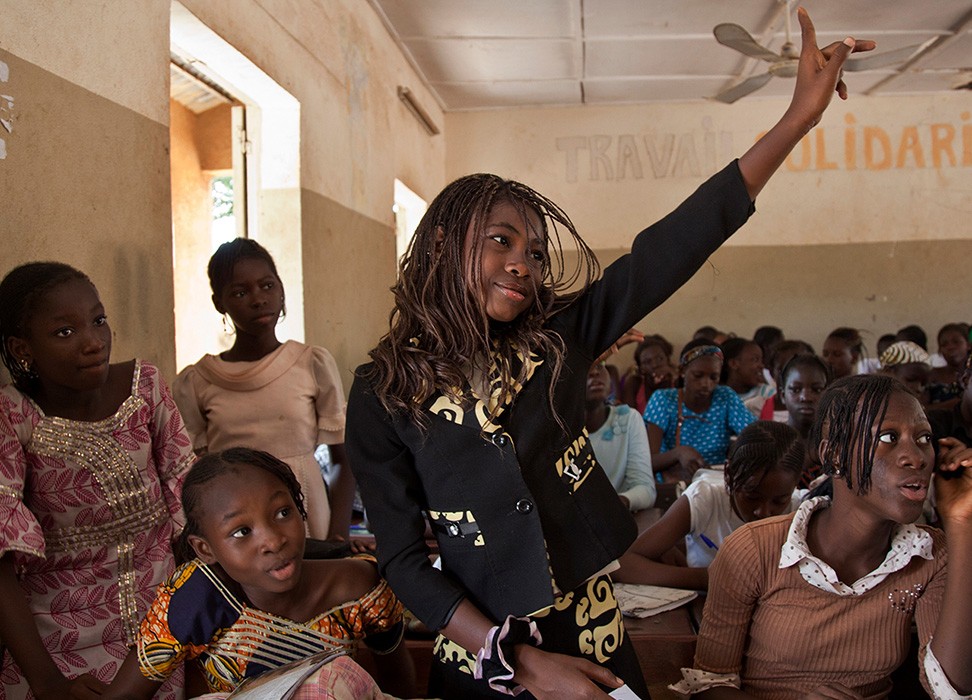
“Human rights education has seldom been more important than at this moment in history,” Human Rights Chief Volker Türk said during a recent speech to mark the 75th anniversary of the Universal Declaration of Human Rights.
Türk was speaking about the array of challenges the world is facing today – from the climate emergency to war to rising inequality and discrimination to hate speech and misinformation.
Human rights education refers to a wide range of educational programs and activities that aim to develop knowledge, skills and attitudes, enabling learners to exercise their human rights and respect and uphold the rights of others.
For Elena Ippoliti, coordinator of Human Rights Education and Training at UN Human Rights, human rights education represents an important investment to build a just, peaceful and sustainable future that is consistent with human rights principles.
By encouraging inclusion and participation, preventing conflict and promoting values such as solidarity and empathy, human rights education has the power to bring change, Ippoliti said.
“Human rights education fosters a sense of common humanity as it upholds the universality of human rights,” she explained. “It also encourages dialogue and appreciation of diversity.”
Human rights education and youth
Ippoliti said human rights education can be especially empowering for children and youth as it enables them to fulfil their role as active citizens and participate in decision-making in society.
“Young people have an enormous contribution to make in the world we live in, and we need to make sure that education gives them the tools they need to stand up for their rights and the rights of others,” Ippoliti said.
According to UN data, there are 1.2 billion people aged 15 to 24 today, accounting for 16 per cent of the global population. By 2030 – the target date for the Sustainable Development Goals that make up the 2030 Agenda – the number of youth is projected to grow by 7 per cent, to 1.3 billion.
Whether it is fighting for climate action, advocating for LGBTI rights or protesting gender inequality and social injustice, young people across the world are at the forefront of human rights activism, demanding change.
UN Human Rights plays a leading role in human rights education, including building human rights capacity and documenting and sharing good practices. Through workshops, education programs, fellowships and grants, the Office engages with youth on human rights education and training in several ways.
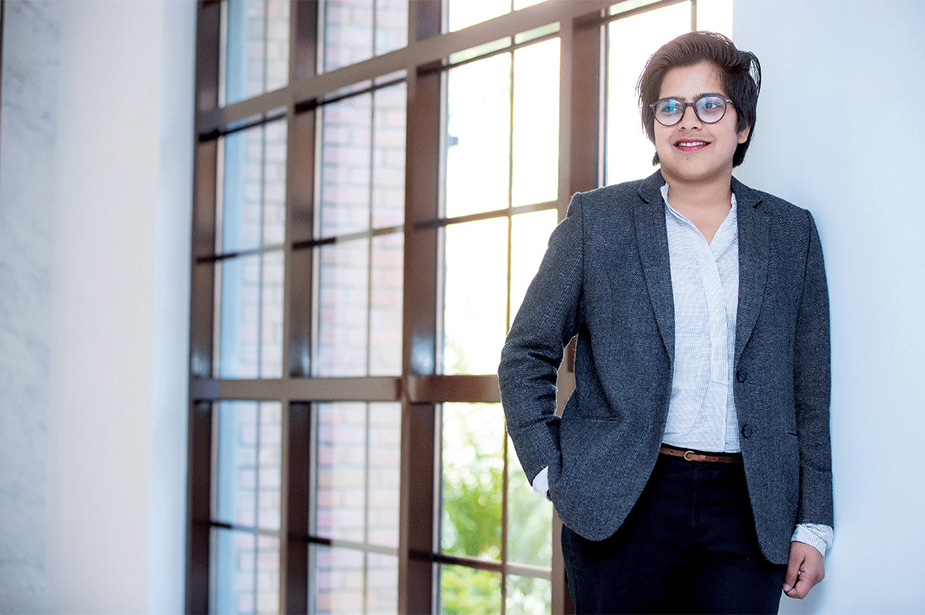
“Young people are the next-generation leaders who can work with local governments to bring policies to end discrimination in society.” © Shailee Chaudhary
Shailee Chaudhary, a young human rights activist from Nepal, participated in a recent human rights workshop in Kathmandu organized by the Office on the role of youth in promoting and protecting the rights of persons from descent-based communities in South Asia, which included a focus on access to justice as a prerequisite in combating discrimination.
Chaudhary, from Dalit Lives Matter, campaigns with other youths to end descent-based discrimination and caste-based practices such as untouchability and other forms of stigma against minorities in Nepal. Chaudhary’s focus is the intersection of caste, gender, sexuality, geopolitics and other layers such as ethnicity and indigent status.
The workshop brought over 50 young participants from Bangladesh, India, Nepal, Pakistan, and Sri Lanka, and included a day devoted to capacity building on international human rights law to provide the youths with tools to fight against human rights violations while identifying good practices.
“No matter from which caste you come or your gender identity or your origin, we should all be allowed to have a say and live our lives the way we want to and have the right to a dignified life,” said Chaudhary, for whom the training was “an eye-opening experience.”
Chaudhary said the Dalit Lives Matter movement is seeking to promote a specific UN mandate among member States to end caste-based discrimination.
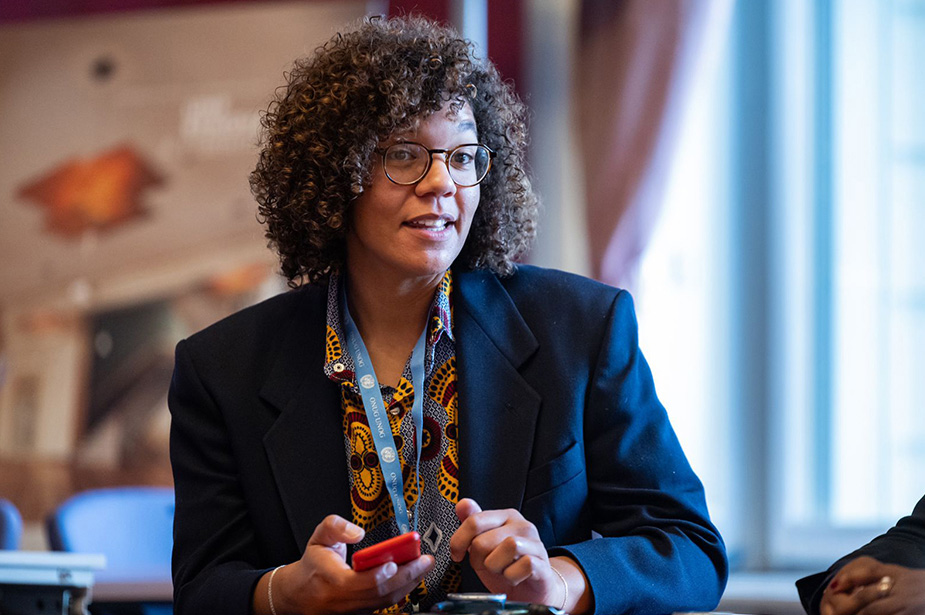
“Through human rights education you can empower yourself and others.” © Anamê Gnanguenon
Anamê Gnanguenon, a young social justice activist based in Lebanon, fights in defense of the rights of marginalized communities, particularly migrant domestic workers. She said that human rights education empowers people to uphold their human rights.
“A lot of young women migrants don’t know about their human rights and their labour rights,” said Gnanguenon, who just participated in the UN Fellowship programme for people of African descent in 2023.
“Awareness enables people to know their rights and have access to social justice and to participate and be stronger against the oppressor,” said Gnanguenon, who produces a podcast called Femmes coupables, in which women migrant workers participate in the podcast’s conception and production.
“For me, human rights education means learning and transmitting. Transmitting skills is very important.”
“
Human rights education is a powerful antidote to the tremendous challenges undermining the basic fabric and social cohesion of our societies, such as inequality, discrimination and violence.
“
UN HUMAN RIGHTS CHIEF, VOLKER TÜRK
To mark the 75th anniversary of the Universal Declaration of Human Rights, the Office launched a film documenting the stories of seven young human rights educators from across the world.
“Changemakers: stories of young human rights educators”, was co-produced by UN Human Rights, Amnesty International and Soka Gakkai International.
